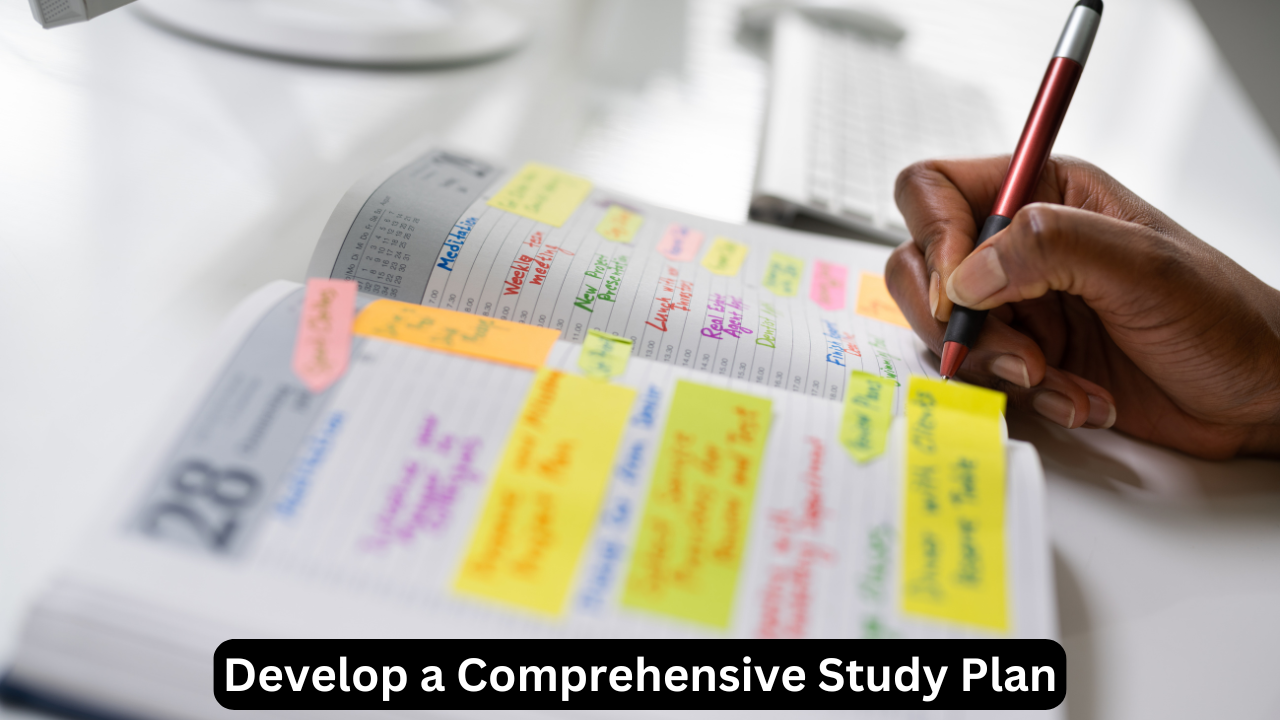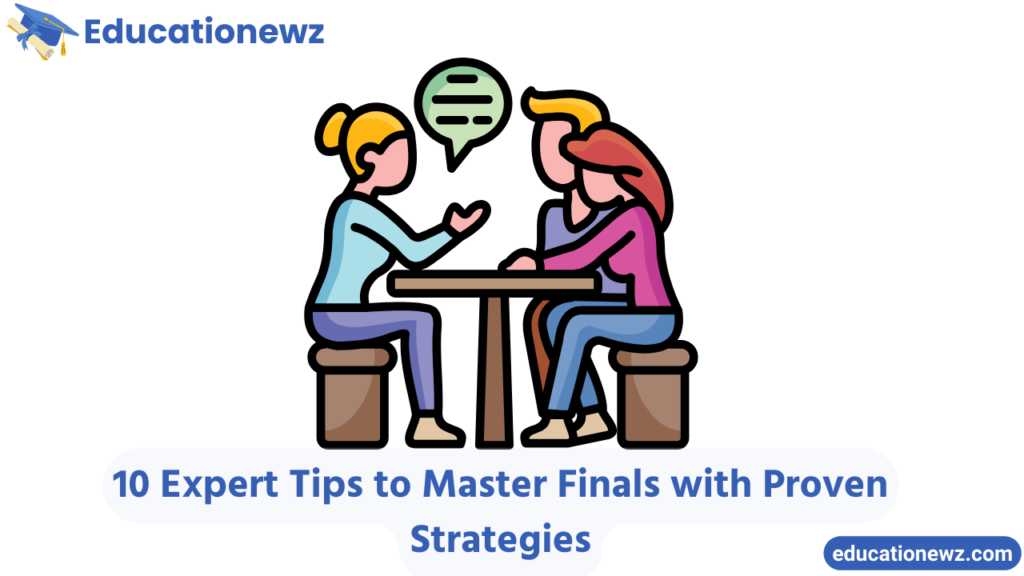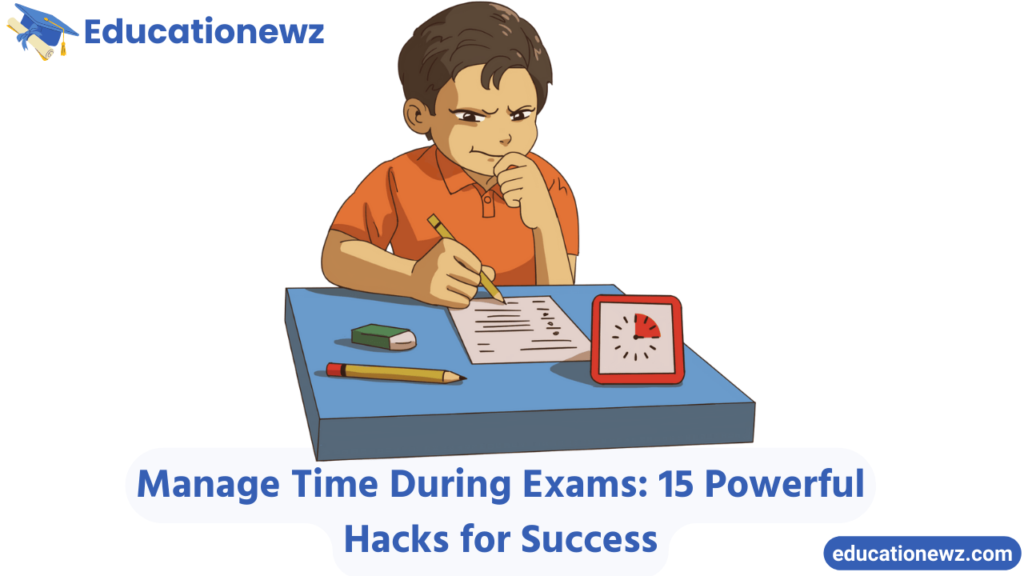Use these expert tips to efficiently prepare for finals, enhance focus, and achieve academic success with proven strategies.
Final exams are often a significant source of stress for students, but the right strategies can help you excel with confidence. Effective preparation for finals requires smart planning, disciplined execution, and mental resilience. This comprehensive guide outlines 10 expert tips to streamline your preparation, increase productivity, and reduce stress. By following these actionable strategies, you’ll be well-equipped to tackle your exams with ease.
Why Expert Tips and Tricks Are Essential for Finals Success
Finals can be daunting, but the right tips and tricks can make all the difference. Expert tips or Smart strategies like time management, active recall, and stress-relief techniques help you study efficiently and retain information better. These methods take the stress out of studying, boost your confidence, and help you perform your best. In short, using proven tips and tricks transforms your approach to finals, making them more manageable and ensuring you reach your full potential.
1. Develop a Comprehensive Study Plan

A structured study plan ensures you cover all subjects and topics systematically. By mapping out your study sessions, you reduce procrastination and make the most of your time.
How to Create an Effective Study Plan
- Break Down Topics: List every chapter and topic you need to study.
- Set Priorities: Focus first on challenging subjects or areas where you’re weak.
- Allocate Time Blocks: Schedule specific times for each subject, incorporating regular breaks.
- Track Your Progress: Use planners, sticky notes, or apps to stay organized.
| Task | Time Allocated | Priority |
|---|---|---|
| Math Revision | 2 Hours | High |
| History Notes | 1.5 Hours | Medium |
| Practice Tests | 3 Hours | High |
A well-structured plan not only improves focus but also reduces the anxiety associated with last-minute cramming.
2. Set Up an Ideal Study Environment
Your study environment plays a crucial role in how well you retain information. A clutter-free and quiet area enhances concentration and minimizes distractions.
Expert Tips for Creating the Right Environment
- Comfortable Seating: Invest in ergonomic furniture to avoid physical discomfort.
- Good Lighting: Use bright, natural light or desk lamps to prevent eye strain.
- Minimal Distractions: Silence your phone, block distracting apps, and inform others about your study hours.
Organize your study materials neatly. Having everything at hand reduces time spent searching for notes or supplies.
3. Embrace Active Learning Techniques
Passive learning, such as merely reading textbooks, is less effective for long-term retention. Active learning engages your brain and helps you understand concepts better.
Expert Tips for Active Learning
- Summarize Key Concepts: Rewrite difficult topics in your own words.
- Teach Others: Explain topics to a friend or family member.
- Use Flashcards: Quick and effective for memorizing terms or formulas.
- Create Mind Maps: Visualize relationships between concepts.
Engaging with the material through active methods improves comprehension and retention, making study sessions more impactful.
4. Utilize Study Groups for Collaboration
Studying with a group can enhance your learning experience. It provides an opportunity to clarify doubts, gain new perspectives, and divide the workload.
Expert Tips for Study Groups
- Keep groups small (3–5 people).
- Assign topics to each member for focused discussion.
- Set clear goals for each session to avoid wasting time.
- Use tools like shared documents or online platforms for collaborative learning.
Collaborative efforts often lead to better understanding and problem-solving. Ensure your group remains focused on studying rather than socializing.
5. Adopt the Pomodoro Technique for Better Focus

The Pomodoro Technique is a simple yet powerful tool for managing time and maintaining focus. This method involves breaking your study sessions into short, focused intervals with regular breaks.
| Pomodoro Cycle | Duration |
|---|---|
| Focused Study | 25 Minutes |
| Short Break | 5 Minutes |
| Long Break (After 4 Cycles) | 20–30 Minutes |
By limiting study sessions to manageable intervals, you prevent burnout and maintain consistent productivity throughout the day.
6. Leverage Visual Aids and Diagrams
Visual learners often benefit significantly from charts, graphs, and diagrams. These tools simplify complex topics and make them easier to understand and remember.
Why Use Visual Aids?
- Simplifies dense information.
- Makes connections between ideas clearer.
- Enhances memory retention using colors and visuals.
Use apps like Canva or mind-mapping tools to create diagrams or simply draw them on paper. These aids are especially effective for subjects like biology, chemistry, or history.
7. Regularly Test Yourself
Self-assessment is one of the most effective ways to prepare for exams. Testing helps you identify weak areas and reinforces your knowledge.
How to Self-Test Effectively
- Solve past exam papers or mock tests.
- Create your own quizzes from your notes.
- Simulate exam conditions to improve time management.
Frequent self-testing reduces the fear of exams, builds confidence, and ensures you’re fully prepared for finals week.
8. Maintain a Healthy Lifestyle
Studying for finals doesn’t mean neglecting your physical and mental health. A healthy lifestyle directly impacts your ability to focus and retain information.
Expert Tips for Healthy Habits During Finals
- Eat Balanced Meals: Include brain-boosting foods like nuts, fish, and leafy greens.
- Stay Hydrated: Drink plenty of water to keep your brain alert.
- Get Enough Sleep: Aim for 7–8 hours of sleep to consolidate memory.
- Exercise Regularly: Activities like walking or yoga reduce stress and improve focus.
Taking care of your body and mind ensures you perform at your best during study sessions and exams.
9. Avoid Multitasking
Multitasking might seem efficient, but it splits your focus and reduces the quality of your work. It’s far better to concentrate on one task at a time.
Expert Tips to Stay Focused
- Use task management apps like Trello or Notion.
- Turn off unnecessary notifications.
- Dedicate specific times to different subjects.
By focusing on one thing at a time, you’ll achieve better results and feel less overwhelmed.
10. Stay Motivated with Rewards

Finals preparation can be draining, so it’s essential to keep yourself motivated. Rewards, no matter how small, can act as a great incentive to stay on track.
Reward Ideas for Study Goals
- Watch your favorite movie after completing a major topic.
- Treat yourself to a snack during breaks.
- Spend time on a hobby once you finish your daily study plan.
Rewards not only boost morale but also make studying feel less monotonous. Set small, realistic goals to stay consistently motivated.
FAQs About Studying for Finals
1. When should I start preparing for finals?
It’s best to start at least 3–4 weeks in advance, depending on the complexity of your courses.
2. How can I improve my focus while studying?
Create a distraction-free environment, use time management techniques like Pomodoro, and take regular breaks.
3. Are group studies effective for everyone?
Group studies work best for students who thrive on collaboration. If you’re more focused alone, individual study may be better.
4. What’s the best way to manage time during finals week?
Follow a detailed schedule, prioritize tasks, and use techniques like time-blocking or Pomodoro for efficiency.
5. How many hours should I study each day?
Aim for 6–8 focused hours per day, divided into manageable intervals with regular breaks.
Conclusion
By embracing these expert tips, you’ll not only develop powerful study habits but also reduce stress and boost your confidence as finals approach. Success isn’t just about hard work—it’s about working smart. With the right strategies, you’ll stay focused, maintain a healthy balance, and approach your exams with clarity and purpose. Remember, the key to acing your finals lies in studying efficiently, staying organized, and keeping your goals in sight. You’ve got this—now it’s time to turn your efforts into results! Please follow our blog Educationewz.



